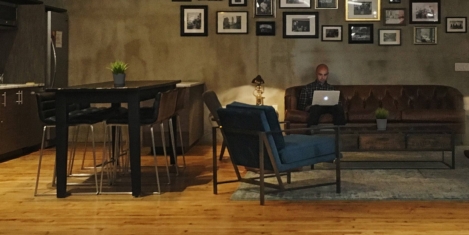May 23, 2017
Over a quarter of workplace absences are down to psychological conditions 0
 HR professionals will, on average, oversee 15 staff with mental health conditions each year, according to new analysis from consultancy, the Clear Company, which also claims that mental health in the workplace as the second biggest challenge facing employers in the next five years, with respondents stating that over a quarter (26 percent) of workplace absences were down to psychological conditions. The UK Workplace Wellbeing Survey did find that employers are already putting interventions in place to support staff, with 81 percent offering line manager training (around recognising stress within the workplace), 75 percent offering occupational health support, 72 percent offering employee assistance programmes and a further 62 percent offering separate counselling support.However, according to a recent study by Legal & General, less than 10 per cent of employees feel comfortable disclosing mental health conditions to their employer – meaning that HR may face a challenge in identifying and supporting these individuals adequately.
HR professionals will, on average, oversee 15 staff with mental health conditions each year, according to new analysis from consultancy, the Clear Company, which also claims that mental health in the workplace as the second biggest challenge facing employers in the next five years, with respondents stating that over a quarter (26 percent) of workplace absences were down to psychological conditions. The UK Workplace Wellbeing Survey did find that employers are already putting interventions in place to support staff, with 81 percent offering line manager training (around recognising stress within the workplace), 75 percent offering occupational health support, 72 percent offering employee assistance programmes and a further 62 percent offering separate counselling support.However, according to a recent study by Legal & General, less than 10 per cent of employees feel comfortable disclosing mental health conditions to their employer – meaning that HR may face a challenge in identifying and supporting these individuals adequately.















 Less stress and better workplace relationships are the reason why the happiest regions to work in the UK are Yorkshire and the Humber; while uninteresting work is the reason why employees in Scotland and the South are the most unhappy. Research into
Less stress and better workplace relationships are the reason why the happiest regions to work in the UK are Yorkshire and the Humber; while uninteresting work is the reason why employees in Scotland and the South are the most unhappy. Research into 
 Seven in ten UK employees – equivalent to 18 million nationally – have gone to work feeling unwell when they should have taken the day off, while less than a quarter (23 percent) say they have taken a day off work sick when they were not actually unwell, indicating that UK employees are three times more likely to go to work unwell than they are to ‘pull a sickie,’ a new report claims. The fourth edition of the Aviva Working Lives Report, which examines the attitudes and experiences of employers and employees on issues affecting the present and future of the UK workplace – also carries a wake-up call to businesses, as more than two in five (43 percent) employees feel their employer puts the results of the company ahead of their health and wellbeing as more than two in five (41 percent) say their work will pile up if they are off sick.
Seven in ten UK employees – equivalent to 18 million nationally – have gone to work feeling unwell when they should have taken the day off, while less than a quarter (23 percent) say they have taken a day off work sick when they were not actually unwell, indicating that UK employees are three times more likely to go to work unwell than they are to ‘pull a sickie,’ a new report claims. The fourth edition of the Aviva Working Lives Report, which examines the attitudes and experiences of employers and employees on issues affecting the present and future of the UK workplace – also carries a wake-up call to businesses, as more than two in five (43 percent) employees feel their employer puts the results of the company ahead of their health and wellbeing as more than two in five (41 percent) say their work will pile up if they are off sick.















May 18, 2017
Reflection on facilities management and the people I’ve met along the way 0
by Paul Carder • Comment, Facilities management
(more…)